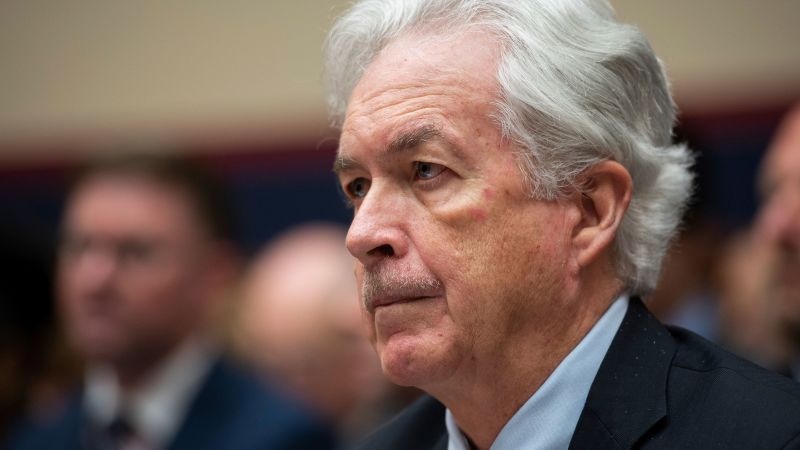CIA Director Bill Burns is currently in Cairo engaged in negotiations involving a ceasefire and a potential hostage deal amid the Israel-Hamas conflict. Burns has played a significant role on behalf of the United States in the talks between Israel, Hamas, Egypt, and Qatar regarding the release of hostages held in Gaza and a temporary ceasefire. Hamas is considering a new proposal from Egypt that involves releasing 33 hostages in exchange for a cessation of hostilities in Gaza. American officials are optimistic about the new proposal and are hoping for Hamas’ acceptance, although the final decision rests with Hamas leader Yahya Sinwar.
The White House confirmed that as of Thursday, they have not received a response from Hamas regarding the proposed deal. Communication with Sinwar, who is believed to be in Gaza, has been challenging at times. Despite this, Hamas announced that they would send a delegation to Cairo to continue discussions on the proposal with a positive attitude. The US officials are viewing this proposal as the best opportunity to end the violence in Gaza and hope that a temporary ceasefire could create space for ongoing negotiations towards a lasting peace.
There is pressure on Israel to agree to a hostage-ceasefire deal to avert a possible ground invasion into Rafah in southern Gaza, where a significant number of Palestinians have sought shelter. Even with a deal, Israeli Prime Minister Benjamin Netanyahu has stated that Israel could still enter Rafah to eliminate the threat from Hamas. Some far-right factions within Netanyahu’s coalition have urged against agreeing to the ceasefire deal, favoring a continued push into Rafah to target Hamas and disregarding the return of Israeli hostages.
US officials have been briefed by Israeli counterparts about their evacuation plans for civilians in Rafah, focusing on humanitarian concerns such as shelter, food, and sanitation. The current readiness of Israeli forces for a potential Rafah operation is unclear, but communication with aid organizations and the construction of shelters for potential evacuees suggest some level of preparation. However, concerns remain about the capacity to support the large numbers of people affected by a possible military incursion into Rafah.
Israel has engaged with humanitarian aid organizations to inform them of potential evacuation plans for civilians in Rafah, indicating a forthcoming operation without a specific timeline. Plans include closing the Rafah crossing while hoping to keep the Kerem Shalom crossing open for aid supplies. The government also intends to redirect aid through Kerem Shalom and expand the safe zone in al-Mawasi for evacuated civilians. There are doubts about the infrastructure of al-Mawasi to sustain the large number of people currently residing in Rafah, raising concerns about the humanitarian implications of a possible military operation.


